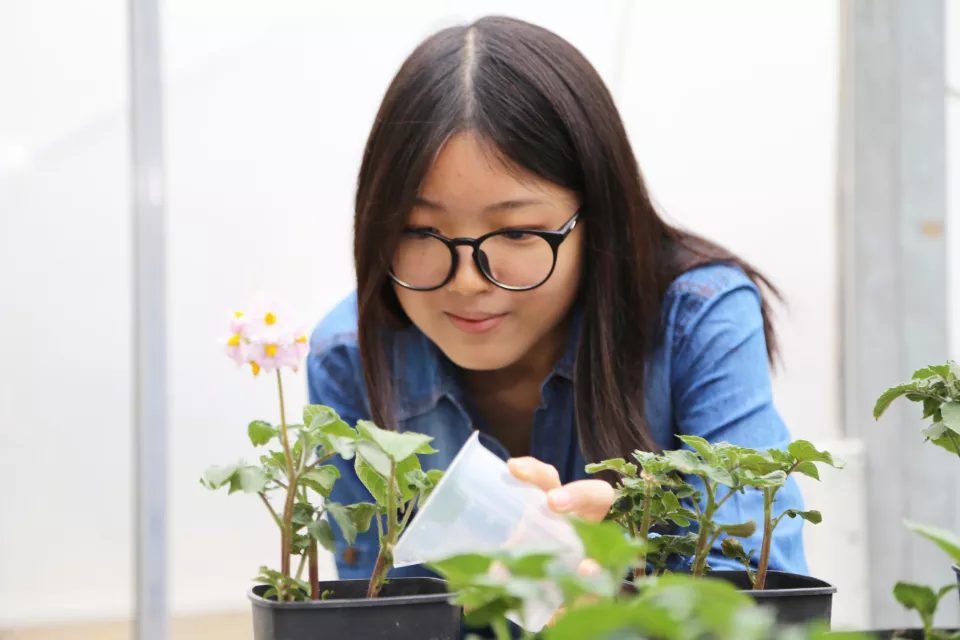
Course: Industrial Biochemistry
Supervisor: Achim Schmalenberger
Name of Research Project/Activity: Recycling-derived fertilisers and their effects on plant growth and microbial nutrient cycling
Q) Can you tell me a bit about yourself, your background, and why you decided to study the course you are taking at UL?
Being born in Indonesia and having spent most of my life there, I have always had an affinity with nature. My hometown is known for its rich food resources and agricultural industry as a result of the availability of fertile soil in the region. Despite this, poverty and hunger are still prevalent. At the time when I was choosing my career path, I wanted to prioritise helping people to avoid food poverty. I decided to study biochemistry with the hope of improving the industrialised food supply, especially through biotechnology research.
Q) What motivated you to apply for the Summer Bursary Programme?
Joining the Summer Bursary Programme has given me the opportunity to reach out to several professors and researchers in UL. My conversations with them have given me a picture of the types of research that are currently being undertaken at UL. The experience of the master's and postgraduate students I engaged with also inspired me to consider the possibility of pursuing a career in research. More importantly, the internship itself provides me with lab training, including practical skills, various procedures, and analysis approaches. This lab experience will definitely be useful in the future if I decide to do a similar type of project.
Q) What are you doing as part of your research here at UL?
I am currently investigating the effect of struvite on the growth of potato crops and phosphate-utilising soil bacteria activity compared to commercial fertilisers. Struvite is a recycling-derived compound that contains essential plant nutrients, namely, nitrogen, magnesium, and phosphate. It has the potential to be used as a fertiliser if proven to have similar properties as commercial fertilisers. This project tested the fertiliser on three varieties of potatoes. For each of them, three fertilisers were used. That is struvite, superphosphate, and organic fertiliser. The physical growth of the potato greens was observed, while the rhizosphere microorganisms were analysed for phosphorus content and phosphatase activity by cultivation in several medias.
Q) What skills have you developed over the summer?
This programme gave me the opportunity to work with soil microorganisms. In order to perform this, I was trained in preparing growth media, agar plating, and obtaining microorganisms from the surface of the roots. In addition, I have developed discipline towards lab safety and procedures, such as handling sterile objects, maintaining sterile working conditions, managing time during experiments, and cooperating with a lab partner.
Q) What has this experience taught you and what would you recommend it to others?
This project taught me about perseverance when faced with unexpected obstacles. Every step, from planning, experimenting, failures and corrections, is a valuable learning experience and it gives me a glimpse of what actual research looks like. I am grateful to have such a welcoming team who are willing to guide me through this process. For those who are interested in pursuing career in research or want to expand their skills and network, this is definitely the right programme.
Q) What are your future career plans, would you consider a career in research?
While the future is still uncertain for me, biotechnology research is a career path that I have always considered. This project opens up a new door to combinations with sustainability and agriculture. While participating in the summer research programme I have been exposed to some of the theories backing the research itself, on top of the practical lab skills that I had learnt. Therefore, a combination of research and industrial manufacturing is also something I’m interested in learning.
